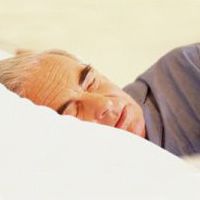Article
Are Bipolar-Related Sleep, Wake, and Activity Cycles Inherited?
Author(s):
Study results show that more than a dozen traits related to sleep, wake, and activity cycles associated with severe bipolar disorder appear to be inherited.

An international study led by University of Texas Southwestern Medical Center and University of California, Los Angeles researchers indicates that more than a dozen traits related to sleep, wake, and activity cycles associated with severe bipolar disorder appear to be inherited. Published online on December 28, 2015 in Proceedings of the National Academy of Sciences, the research also links these traits with specific chromosomes that provide insight into the genetic nature of bipolar disorder and possible targets for prevention and treatment.
The research is the first large-scale delineation of sleep and activity traits in people with bipolar disorder and their relatives and the first genetic investigation of a large set of sleep and circadian measures in any human study.
“We were able to identify 13 sleep and activity measures, most of which are inherited, that correlated with whether an individual had bipolar disorder,” said Joseph Takahashi, PhD, Professor and Loyd B. Sands Distinguished Chair in Neuroscience and Howard Hughes Medical Institute Investigator at UT Southwestern. “In addition, we were able to trace some of these traits to a specific chromosome.”
Adding to Takahasi’s remarks, Nelson Freimer, MD, Director of the Center for Neurobehavioral Genetics; Professor of Psychiatry; Associate Director for Research Programs of the Semel Institute for Neuroscience and Human Behavior, the Informatics Center for Neurogenetics and Neurogenomics, the UCLA Neuroscience Genomics Core, the Biological Samples Processing Core, and the NINDS-funded Postdoctoral Training Program in Neurobehavioral Genetics; and Co-Director of UCLA Neuroscience, all at UCLA, said, “This study represents a key step in identifying the genetic roots of this disorder and, in turn, providing targets for new approaches to preventing and treating bipolar disorder.”
The findings add to long-held hypotheses in neuropsychiatry that bipolar disorder is caused by both genetic and environmental factors and the suspicion that disruptions in normal daily circadian rhythms can precede mood shifts in patients with this disorder.
For the study, the researchers analyzed data on 500 members of 26 families from Cost Rica and Colombia that all included many individuals with severe bipolar disorder. They found that people with the disorder, when compare with those without it, awoke later and slept longer, were awake fewer minutes overall on average, were active for shorter periods of time, had lower activity levels when awake, and displayed greater variations in their sleep and wake cycles.
The 13 endophenotypes identified by the research team were:
- Mean of awake duration
- Amplitude
- Hill acrophase
- Interdaily stability
- Interdaily variability
- Median activity
- Relative amplitude
- Mean length of sleep bouts during the sleep period
- Mean number of sleep bouts during awake period
- Time of sleep offset
- Time of sleep onset
- Mean total minutes scored awake
- Total minutes in awake bouts after sleep onset, or WASO
2 Commerce Drive
Cranbury, NJ 08512
All rights reserved.




